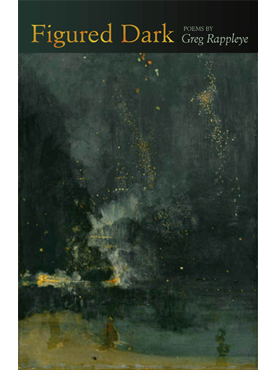Winner, 2025 Miller Williams Poetry Prize
Barley Child, Greg Rappleye’s fifth collection, draws from family legends, whispered stories, and sworn denials across four generations of Irish American lives—recalled, imagined, and reconstructed from census records, old letters, church registries, yellowed newspaper clippings, and a few odd photographs in which the human figures are often unnamed. The sum of these affidavits, arrayed across the lyric and narrative lines of these poems, is an electrifying human choir—male and female, child and adult, Irish and American—their voices rising out of shame, poverty, absurdity, violence, a strained Catholic faith, and a virulent legacy of madness and alcoholism.
Free of nostalgia and cant, with a sharp Irish wit that often braves nearly monstrous subject matter, and reported with eyes that seldom mist over, Barley Child is a volume that once again confirms Greg Rappleye as a poet of witness.

Greg Rappleye is the author of A Path Between Houses, Figured Dark, and Tropical Landscape with Ten Hummingbirds, and is a former Bread Loaf Fellow in Poetry and the winner of the 2000 Brittingham Prize in Poetry. His poems have appeared in Poetry, the Southern Review, the North American Review, Arts & Letters, Shenandoah, Virginia Quarterly Review, and elsewhere. He teaches in the English department at Hope College in Michigan.
“Like the characters in all the best poetry collections—and this is one of those—the people who inhabit the ‘blown-gasket town’ depicted here are utterly different from you and me and also exactly like us. How is this possible? Through Greg Rappleye’s unfailing artistry.”
—David Kirby, author of The House on Boulevard St.
“Greg Rappleye welds a poet’s ear for cadence and music to a novelist’s eye for detail, opening up for us a Hiberno-inflected Americana. Here in controlled diction, deployed for dizzying effect, we find lives without privilege, lives of stratified emotion layered upon a cornucopia of plant life, urban bric-a-brac, and mid-twentieth-century cultural artifacts. Rappleye paints for us a portrait of a time which is no more, but which can never fade completely while recorded by his precise language.”
—Patrick Cotter, author of Sonic White Poise
“Barley Child is a collection so vividly imagined and so beautifully written that one hesitates to read the final poem, not wanting the spell to end.”
—Julie Kane, author of Mothers of Ireland





